Understanding Vaginitis in Dogs: Symptoms, Causes, Treatment and Prevention

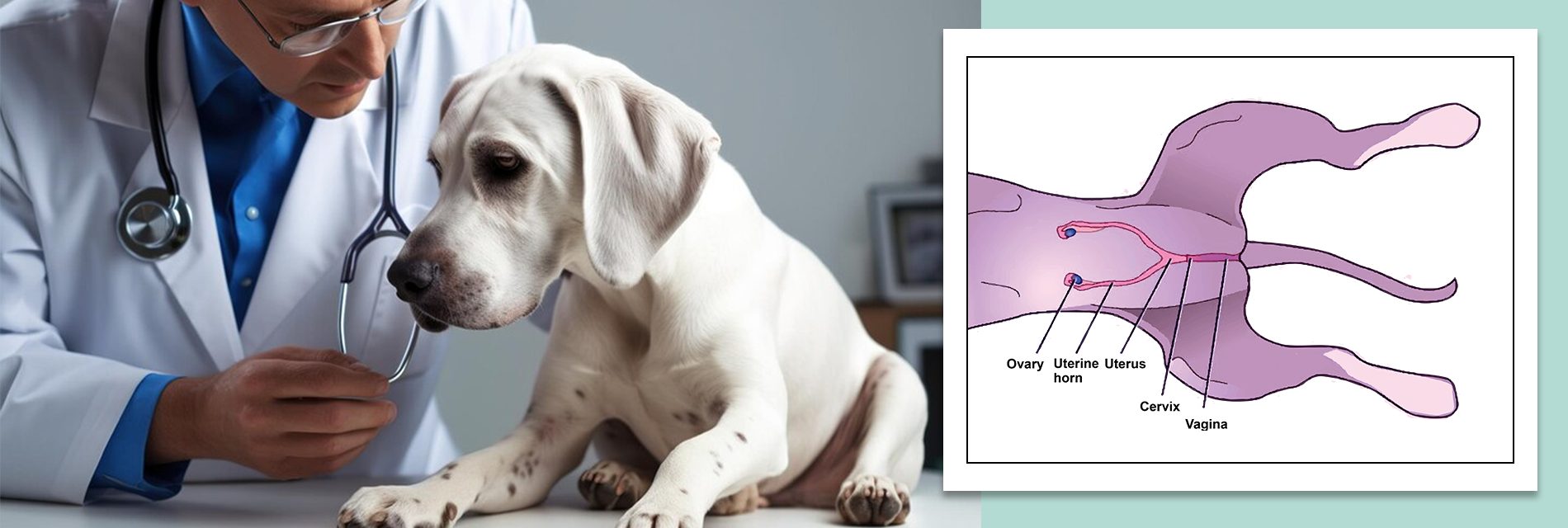
As a loving pet parent, witnessing your dog experience discomfort can be incredibly worrying. When that discomfort involves a sensitive area like the genitals, it can be especially unsettling. Vaginitis, the inflammation of the vagina, can affect female dogs of any age and breed, causing symptoms like discharge, licking, and straining to urinate. While it might sound scary, having a better understanding of vaginitis in dogs will help you to navigate this situation with confidence and care.
In this article, we’ll delve into the symptoms to watch out for, explore the various causes, and guide you through treatment options. We’ll also discuss prevention strategies to help you keep your furry friend healthy and happy.
What is Vaginitis in Dogs?
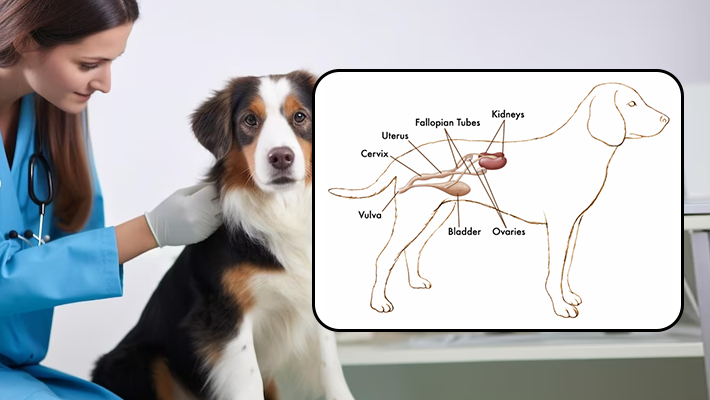
Vaginitis is a common condition that affects female dogs, and it refers to the inflammation of the vagina. This condition can occur in dogs of any age whether spayed or intact, but it is more commonly seen in puppies and older dogs.
There are two types of vaginitis: juvenile or puppy and adult-onset vaginitis. Juvenile vaginitis occurs in puppies between the ages of six months and two years. It is usually not a very serious medical condition and heals on its own after a female puppy’s first estrus, also known as dog heat cycle.
On the other hand, adult-onset vaginitis can occur at any age. The condition is usually not serious, but it can cause discomfort and can lead to more serious complications if left untreated.
What Are The Causes of Vaginitis in Dogs?
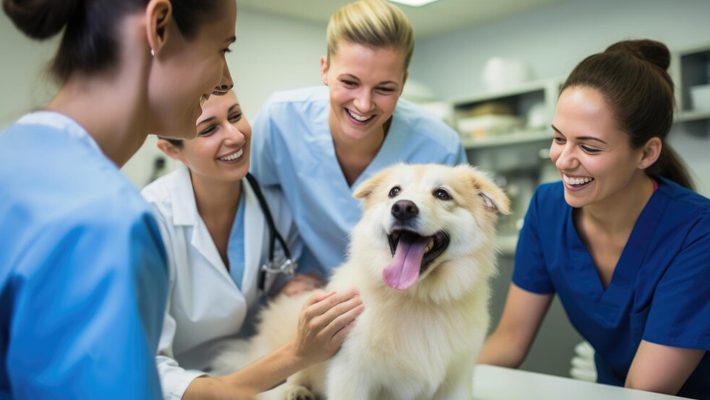
Vaginitis in dogs can have several causes, including bacterial infections, fungal infections, hormonal imbalances, and foreign bodies. Bacterial infections are the most common cause and are often the result of the normal bacteria found in a dog’s feces migrating to the vagina.
Fungal infections, such as yeast infections, can also cause vaginitis. Hormonal imbalances, particularly an increase in estrogen levels, can lead to vaginitis in adult dogs. Lastly, foreign bodies, such as grass seeds or other debris, can cause irritation and inflammation of the vagina.
What Are The Symptoms Of Vaginitis in Dogs?

The symptoms of vaginitis in dogs can vary depending on the severity of the condition. Some common symptoms include:
- Discharge: Dogs with vaginitis may have a cloudy or white vaginal discharge. The discharge may have a foul odor and can be more noticeable after urination.
- Frequent urination: Vaginitis can cause irritation of the urethra, leading to increased frequency of urination. Your dog may also have accidents in the house or have difficulty holding her urine.
- Redness and swelling: The vaginal area may appear red and swollen. Your dog may lick or scratch at the area due to discomfort.
If you notice any of these symptoms in your dog, it is important to consult with your veterinarian for a proper diagnosis and treatment.
It is recommended to consult with your veterinarian if you notice any signs or symptoms of vaginitis in your dog. Your veterinarian will be able to provide a proper diagnosis and recommend the appropriate treatment based on the underlying cause.
Additionally, it is important to seek veterinary care if your dog’s symptoms worsen or if you notice any of the following:
- Blood in the vaginal discharge
- Persistent or recurrent vaginitis
- Signs of pain or discomfort, such as whining or difficulty sitting
Your veterinarian is the best resource for diagnosing and treating vaginitis in dogs, so don’t hesitate to reach out for professional help.
Complications:
While vaginitis is generally not a serious condition, it can lead to complications if left untreated. Some potential complications of vaginitis in dogs include:
- Urinary tract infections (UTIs): The inflammation and irritation caused by vaginitis can increase the risk of developing a UTI. UTIs can cause more severe symptoms and may require additional treatment.
- Chronic vaginitis: In some cases, vaginitis can become a chronic condition, leading to recurrent infections and ongoing discomfort for your dog.
- Pyometra: Pyometra is a serious uterus infection that can result from untreated vaginitis. This condition can be life-threatening and requires immediate veterinary care.
It is important to seek veterinary treatment for vaginitis in dogs to prevent these complications from occurring.
Diagnosis And Treatment of Vaginitis in Dogs

Diagnosing vaginitis in dogs typically involves a physical examination and a review of your dog’s medical history. Your veterinarian may also recommend additional tests, such as a vaginal swab or urine analysis, to determine the underlying cause of the vaginitis.
Treatment for vaginitis in dogs will depend on the underlying cause. Bacterial infections are usually treated with antibiotics, while fungal infections may require antifungal medications. Hormonal imbalances can be managed with hormone therapy. In some cases, your veterinarian may recommend surgical removal of foreign bodies or other treatments to alleviate the symptoms.
It is crucial that you follow your veterinarian’s instructions for the treatment of vaginitis in dogs. In addition, you also need to ensure that your female dog completes the full course of medication, even if her symptoms improve. If your dog doesn’t complete the medication course, it can result in the development of resistance to antibiotics or a recurrence of the infection or the of antibiotic resistance.
How To Prevent Vaginitis in Dogs
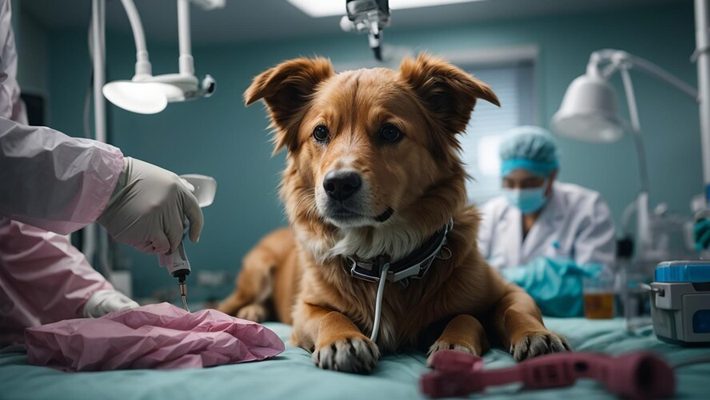
Preventing vaginitis in dogs can be challenging, but there are some steps you can take to reduce the risk of your dog developing the condition:
- Good hygiene: Regularly clean your dog’s genital area with a gentle, pet-safe cleanser. Avoid using harsh soaps or chemicals that can disrupt the natural balance of bacteria in the vagina.
- Proper diet: A balanced diet can help support your dog’s overall health and immune system, reducing the risk of infections. Consult with your veterinarian to determine the best diet for your dog’s specific needs.
- Avoid irritants: Keep your dog away from potential irritants, such as chemicals, perfumes, and other substances that can cause irritation to the vaginal area.
- Regular veterinary check-ups: Routine veterinary care is essential for maintaining your dog’s health. Regular check-ups can help detect and treat any underlying conditions that may increase the risk of vaginitis.
Wrapping Up
Vaginitis is a common condition that can affect female dogs of all ages. While it is generally not a serious condition, it can cause discomfort and lead to more serious complications if left untreated.
By understanding the causes, symptoms, and treatment options for vaginitis, you can provide the best care for your furry friend. Remember, prevention is key. By practicing good hygiene, providing a balanced diet, and seeking regular veterinary care, you can reduce the risk of your dog developing vaginitis.
If you notice any signs or symptoms of vaginitis in your dog, don’t hesitate to reach out to your veterinarian for professional advice and treatment. Take care of your dog’s reproductive health, and she will thank you with a wagging tail and lots of love!






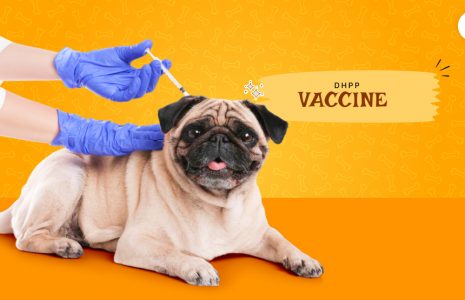

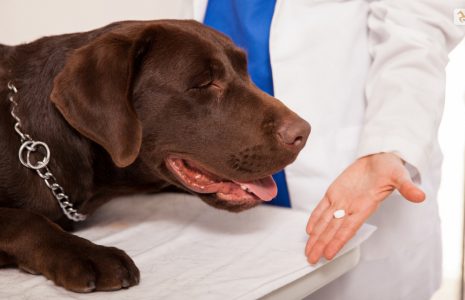
Leave A Comment